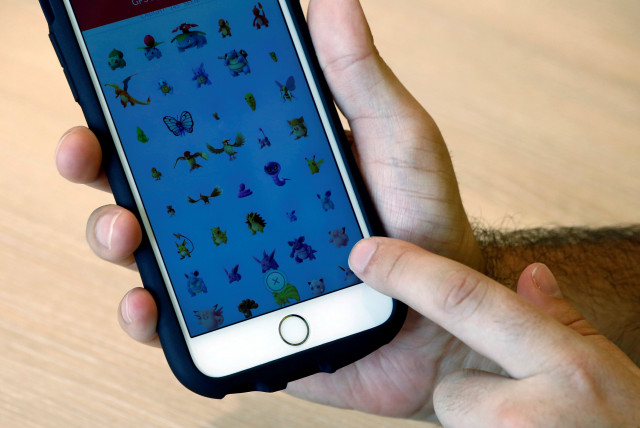How Pokemon Go can help research, crack consumer behaviour
An example of co-creation, concept will be key in future business operations

Gamification was mentioned in the Gartner Hype Cycles and is seen as a paradigm shift that stresses more on a human-focused approach. PHOTO: REUTERS
Imagine if one could tap in to the behavioural psychology of such addictive mobile games and leverage it to conduct social research or solve a physics problem that requires millions of man-hours.
Here's how you can play Pokemon Go in Pakista
The idea is not a new one. Few years ago, researchers at the University of Washington developed a game ‘Foldit’ with the objective to understand impact of a protein on HIV. Over 46,000 players took just 10 days to crack the problem that had puzzled scientists for about 15 years.
Gallup, in a recent study, revealed that the majority of the US workforce is bored, apathetic, and disinterested; and on average, 70% of the US workforce is “not engaged” - leading to a high employee turnover. This phenomenon is estimated to cost the US businesses more than $350 billion in lost productivity. Imagine if ‘gamification’ could fix that – making employees more engaged and willing to go the extra mile.
It is amazing how games could be used to make a dull activity like filling in survey forms more engaging. It is an example of classic co-creation - where a game developer develops a storyline, rules and visuals while the player takes part in the value-creation whenever he opts to play it.
The main aim of a gamified-survey is to offer exciting, challenging and thrilling experiences to the player while at the same time, collecting key behavioural insights and data.
Should I be scared to play Pokémon Go if I live in Pakistan?
Principles of a game-based survey design
It is, however, important to note that “gamification is not games” but aims to use ‘Pokemon-Go like player behaviour’ in solving non-game problems. Gamification develops a compelling narrative that boosts intrinsic motivation through instant feedback loops.
It is a relatively new concept and there is not much literature available in this area. However, there are some rules of thumb: convert research questions into game scenarios, introduce competition and offer a multi-player experience and use incentives and rewards.
The first step to gamification of survey involves developing a storyline and then simulating scenarios to accommodate research questions.
One can use role-playing concepts to create exciting situations and making use of animated characters and visuals. Secondly, all games have some element of competition such as beating the computer, another human user or just the clock. The game should be challenging enough to keep the user engaged but should not be too difficult to discourage them.
Finally, game masters can make use of incentives such as leader boards, badges and reward programmes. Customer loyalty and marketing programmes have been using game mechanics such as points accumulated and rewards for decades, for example; the frequent-flyer miles.
A gamification exercise was conducted by a group of Cambridge-based consultants in 2013 for a marketing firm to collect data related to fashion brand recognition.
Instead of asking their preferred brand directly, they were presented with a hypothetical game-like story that borrowed elements from Paris fashion week. The game approach not only increased the response rate from 21% to 82%, but also provided researchers with additional information related to consumer behaviour.
The future of gamification
The Pew Research Centre has predicted that by the end of the next 5 years, use of gamification will be widespread and many Fortune500 companies shall use it as a key tool in their business operations.
Gamification was mentioned in the Gartner Hype Cycles and is seen as a paradigm shift that stresses more on a human-focused approach.
Top Saudi clerical body says Pokemon Go is 'haram'
So yes, Pokemon Go critics have their own reason to bash the game but the gamification approach offers immense potential to drive engagement and support overall value creation.
The writer is a Cambridge graduate and is working as a management consultant
Published in The Express Tribune, August 15th, 2016.
Like Business on Facebook, follow @TribuneBiz on Twitter to stay informed and join in the conversation.



















COMMENTS
Comments are moderated and generally will be posted if they are on-topic and not abusive.
For more information, please see our Comments FAQ